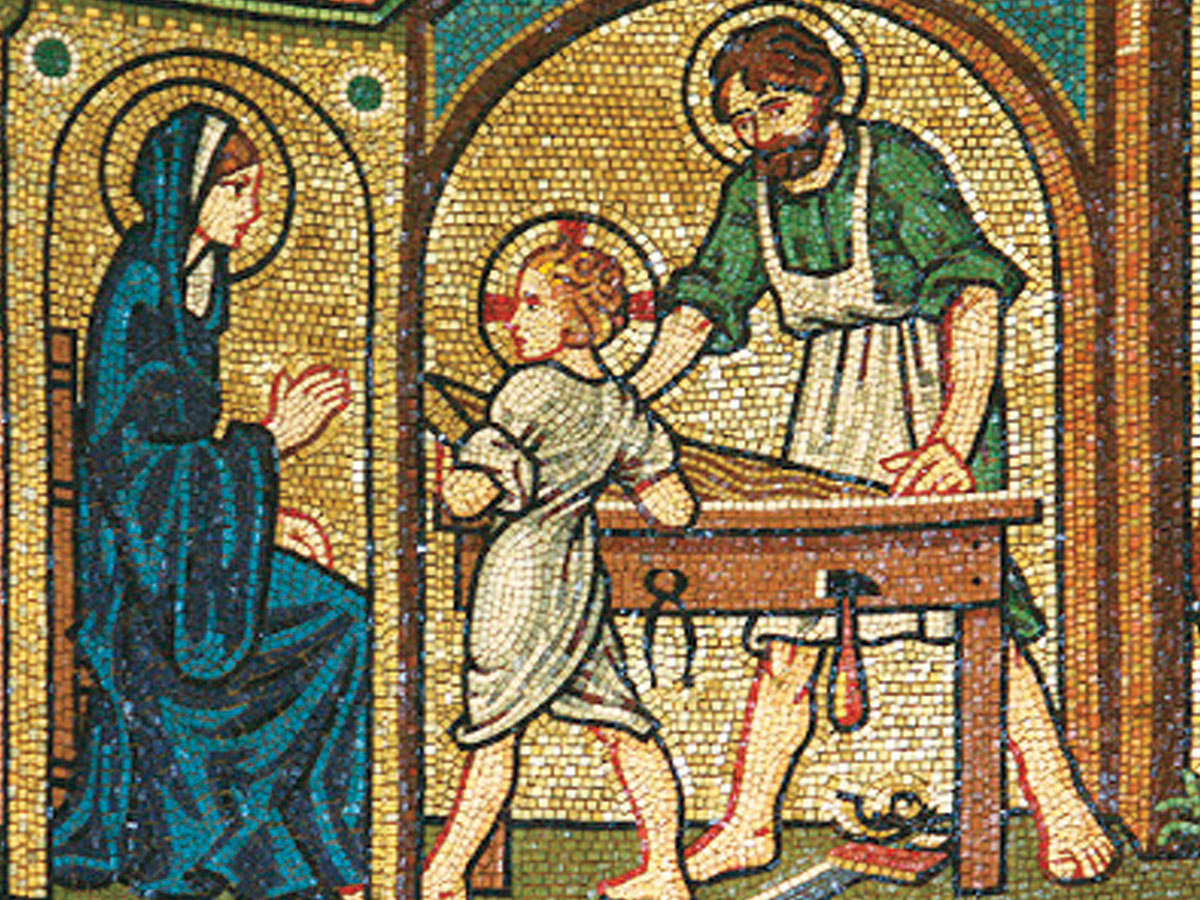Lord of all eagerness, Lord of all faith, whose strong hands were skilled at the plane and the lathe: Be there at our labors, and give us, we pray, your strength in our hearts, Lord, at the noon of the day.
From the Hymn “Lord Of All Hopefulness” by Jan Struther (Joyce Placzek) (1901-53)
We all need a form of therapy in our lives which builds up the soul and helps us set aside the stresses of life and—just for just a moment—helps us engage in the beauty of simplicity.
I have often mused on the fact that God incarnate chose to be a craftsman. The purpose found in God’s message to the world, through the life and example of Jesus, reveals again and again ‘groundedness,’ as a preferential option for the poor and marginalised. God could have chosen anything, but instead chose to be born in questionable circumstances to a family whose home town was often looked down upon by the rest of society.
The role Jesus would fulfill for most of his adult life was that of a tekton: meaning a carpenter or builder. Thus we find the role of a 1st Century Palestinian carpenter achieve great elevation, and rightly so. But does society truly value those who build our homes and who work with their hands? Let us think a little about the spirituality of being a craftsperson.
There is currently a grand worldwide rediscovery of traditional crafts. Woodwork is by no means least within this movement. Thanks to YouTubers such as Paul Sellers and Mr Chickadee, people are learning to create functional furniture that is, even if there are mistakes (and there always are) something of exquisite creation which tells a story of love.
Working with wood is a deeply humbling experience. Even once the tree is cut, the wood will continue to move and warp and require respect. If you treat it the wrong way then it will tear, but if you treat it right it will give you a surface like polished marble.
All of this splendour can be achieved by using simple hand tools; such as the plane. But one has to enter into a special relationship with the wood. For example, the sound of the cut changes if you are doing things wrong, and if you do not listen to it mistakes will be made: an ample metaphor for human relationships.
Then there is the longevity of wood, because old furniture and buildings, which have often long past their usefulness, can be remade into something purposeful for current needs. And finally, for those amateur woodworkers (and the word originally meant ‘lover’) there is the sense of achievement upon the completion of the project.
Yet, with regards to completing a project, the journey can bring as much enjoyment as the destination, and some of us journey a little longer than others. Woodworking teaches the importance therefore of forgiving oneself. So much to learn from one material and I think that is the point. There is nourishment in simplicity.
I once met one of my woodworking idols. My dad and I were at a woodworking show and both being the amateurs we are, we made the pilgrimage to Harrogate. Paul Sellers was demonstrating hand techniques in a show which is famous for its power tools. He had a crowd of several hundred gathered around him whilst all the big names in the industry looked on in envy.
At the end of the show I asked him to sign a book and we chatted. I had so much to thank him for. He helped me rediscover the skills I had learned at my father’s knee. He had given me the therapy I needed when dealing with personal trauma. He had helped me rediscover a connection with Jesus.
Not wearing my dog collar, and it being my afternoon off, I was slightly hesitant to tell him my background, but I wanted him to know what his work meant to me. So, I told him that I was an Anglican priest and he had given me a new connectedness to Jesus. His response was to smile and share with me that it was the same for him.
At his next demonstration he talked about ‘good news’ and basically preached to the crowd about the positive lessons in life to be gleaned from woodwork. We all need something in our lives which helps us to reconnect with Jesus away from the noise of daily life.


